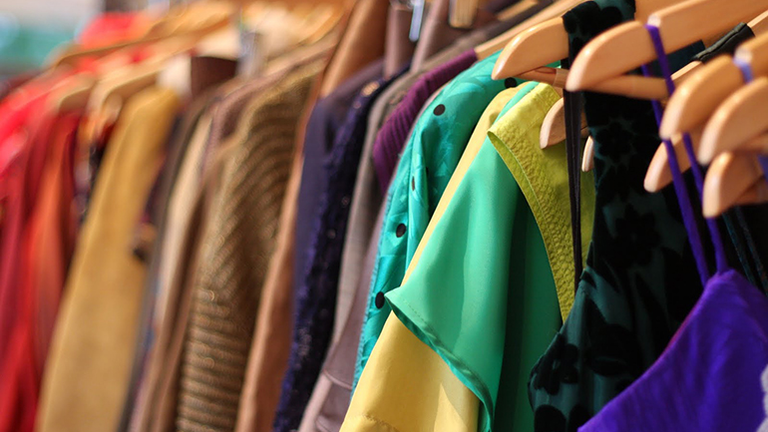
Covid-19 Effect: Designer Sales and Auctions Comes to Fashion’s Rescue
The Covid-19 pandemic has brought many issues to the fore. Unskilled and semi-skilled labourers have always worked tirelessly without getting any recognition. There have of course been many reasons why their contribution to the society was never attributed, but the key reason remain ignorance and complete apathy. Most choose to ignore them because that’s convenient but without these unnamed, unknown men and women working tirelessly, many industries would have crippled, many stalwarts would have dusted the ground. The pandemic has been an eye-opener as most of us finally saw them. In the last few months, these people have made national and international headlines. They have created a fervour, shaken the collectively empathy of the people and have forced us to look beyond ourselves.
Yes, we are talking about the migrant labourers who until the pandemic hit us were no one to us. By walking miles to reach their homes they captured the collective imagination of the people. Their struggles, their spirit to battle all odds made us all look at them with new eyes. The fortunate people of this country came forward to help them. Many who were rendered jobless in these trying times found help not only from the government but also people, corporate organizations and NGOs.
In these past few months we have all realised how important it is for us to stand together as humans first. The pedestals that made us stand above others suddenly didn’t vanished. Suddenly we were all fighting a faceless, unknown virus together. It has been a huge lesson for us all. What has been really heartening has been the fact that the coronavirus pandemic has made many corporates and entrepreneurs thinking out of the box to help the disadvantaged section of the population.
Fashion Industry’s Role in Overcoming Ordeals
Many have forever associated fashion with triviality. While such accusations may be unfounded and demeaning to a large extent, the truth is we tend to ignore or look down at fashion when uncomfortable truths stare at our face. But it cannot be ignored that for the longest time the fashion and beauty industry have taken their corporate social responsibility (CSR) activities very seriously. Many a times they have been the silent crusaders working towards uplifting the working conditions of artisans, small-time weavers and other labourers directly and indirectly associated with the industry. It has been the CSR activity of many fashion brands to consciously create fashion products that do minimal harm to the environment and reduces one’s carbon footprint on this planet. Improving healthcare, providing education to the marginalised have often featured in the CSR activities of brands. There are several other such examples of fashion brands leading from the front.
Many a times the role that the fashion industry have not appropriately been acknowledged by the larger world. Nevertheless fashion brands and renowned designers have been silent crusaders for causes they believe in. The biggest and most underrated contribution of these people have been their tireless work towards artisans and semi-skilled labourers who are really the backbone of the industry.
Fashion Industry’s Relief Measures during Covid-19
When the government first announced a nation-wide lockdown to stop the spread of the virus, the country knew how unprepared it was to deal with the consequences of the ill-fated virus. Face masks, hand sanitizers, hand wash and many other essential items – not only for healthcare workers but for everyone – become utmost priority. Unfortunately there wasn’t enough for everyone. Moreover initially there was so little information about the virus that most people panicked. Eventually virologists explained that wearing masks, maintaining social distance of up to 6 feet, maintaining hand hygiene acted as deterrents to the spread of the virus.
Initially most of us understood that masks meant wearing the N95 respiratory varieties. N95 masks are used extensively by healthcare workers as these face masks are tight-fitting, and can filter 95% of small particles from entering our mouth and nose. This means they can help prevent the spread of the virus to a large extent. Unfortunately there was an acute shortage of N95 masks and the government was procuring, manufacturing as many as they could, especially for healthcare workers and other frontline warriors. People were than told that surgical, one-time use masks could well be used as alternatives to N95 masks, especially for people who could stay at home and venture out only on emergencies. Surgical masks also helped protect against the virus to a large extent. However the downside was that they had to be disposed after every use. Soon it become a cumbersome process to acquire and stock so many masks.
Government agencies and health advisories then noted that hand-made cloth face masks can protect us from the virus. It was a more sustainable, easily accessible, re-usable option for most people. Along with social distancing and other protocols, this soon became the most commonly used variety of mask worn by most people. This is where the fashion stalwarts stepped in. They helped produce and distribute masks in large numbers. Several well-known fashion designers and brands led from the forefront in producing cotton masks so that there was no scarcity. Among those who led from the forefront in making masks include –
- Masaba Gupta – There were two reasons why Masaba, one of the leading fashion designers in the country started making masks as early as in April under the name ‘Maskaba’. One was to sustain her business and give employment to the many workers working for her brand, and the other – for donating to charities. Most of the masks available on her brand’s website have the unique, quirky designs that Masaba is known for. Though the price of each cotton mask is much higher than the regular ones available in the market, she promises to donate one mask to a needy for every piece sold.
- FabIndia – One of the leading cotton fabric brands in India were also among the first Indian brands to produce masks. These masks are made of beautiful hand-block prints and weaves. The brand has always been known to work with traditional weavers. This time too they have sourced raw material directly from the weavers who also stitched the masks.
- Payal Singhal – The ace fashion designer launched her line of cotton masks to create awareness about the use of face masks in public places. She started a social media campaign with trending hanhtags such as #Stayhome #Staysafe #Flattenthecurve to reinforce the message. She roped in celebrities who wore her creations to spread awareness.
- Ritu Kumar – For the veteran fashion designer, the aim of stitching masks was to send them to the slums around Gurugram, Haryana. She started by delivering 1500 masks a day. Now her team is producing over 2000 masks per day.
Other brands that starting making masks for free distribution initially, and eventually started selling them include Fable Street, Greendigo, Lovebirds, Nivedita Saboo and many more.
Designer Sales and Auction – Initiatives to Support the Fashion Industry
Designers and fashion brands continued to spread awareness during the time of nation-wide lockdown that stretched to more than two months. But once the lockdowns were relaxed and markets were opened, the fashion industry faced a new and much more compelling challenge. While markets saw a staggering re-opening, business had already hit an all-time low. One of the mainstays of couture fashion is the big fat Indian wedding. Unfortunately wedding couture has almost become non-existent in these times of social distancing. Not only are fashion designers and brands faced with the task to keeping their business alive, but they must also think of their back-end workers.
In order to support the fashion industry, the Fashion Design Council of India (FDCI) established the Covid-19 Support Fund. The aim was to help small businesses and young designers in the industry. One of the most successful endeavours to this effect was an Instagram live session organised by the designer duo Shantanu and Nikhil Mehra that saw the participation of Sabyasachi Mukherjee, Manish Malhotra, Tarun Tahiliani and Rahul Mishra. The live titled ‘The Fraternity Talks’ not only ended with an insightful discussion on the future of the business, but by the end of the session, all designers volunteered to auction a garment from their collection to raise funds. Soon they managed to raise a little above INR 6 lakhs.
The idea behind the ‘Fraternity Talks’ was to bring the industry together. According to the leading designers, the fashion community had increasingly distanced itself from everyone within and outside. Everyone was either a competitor or an opportunist. But with the Covid-19 situation, the fraternity realised that they could not battle the storm alone. They had to come together and stand for each other if they have to survive. The auction sale was just a baby step towards that goal.
This phenomenon of helping each other in such crucial times hasn’t just been seen in India. Many leading international brands have collaborated over the past few months to create awareness about the virus, to support each other and to become more accountable for their collective action.
In France, 80 international brands came together to support each other in a ‘one-off auction’. Some of the leading names in the business like Louis Vuitton, Chanel, Celine, Dior, Balenciaga came together to support the French healthcare workers. It was a huge success and a great example of solidarity.
Sabyasachi Mukherjee, one of the most renowned Indian fashion designers had been vocal about the need for the community to come together. It was as early as in March that Mukherjee announced that his label would continue to support over 2000 skilled and unskilled labourers directly associated with him for as long as possible. He encouraged and motivated many others to lead from the front.
One of the main reasons why Indian fashion brands and designers need to do similar kind of auction and designer sales is because the industry must come together. While there are guidelines and regulatory bodies for the fashion industry, there is still a lack of camaraderie within the industry. But when a crisis as large as Covid-19 stares at the face, if the community comes together, they can battle it all out. Moreover Indian designers are the biggest employers of traditional artisans and it is their duty to safeguard their interests. If the top notch designers and brands do not bring the supply chain together, these fragile workforce will abandon their skills and look for employment elsewhere. This won’t be good for the industry in the long run.
What Fashion Designing Students Can Learn From This Pandemic
The Covid-19 pandemic has badly hit global economy. It is going to take some time to revive it and it is going to take a lot of concerted effort to do so. While on one hand the economy has been badly hit, fashion designing students have been left with an uncertain future. But there is always a lesson to be learnt from the worst of situations. Students pursuing a career in fashion or in the verge of joining the industry as skilled workers must take lessons from industry stalwarts. If the pandemic could teach veterans to re-invent themselves and work according to the changing demands of the market, students should be able to do the same. What if you had bigger dreams of becoming a name as a wedding couture designer? That dream can surely wait. You must learn to adapt, adopt and change according to the needs of the new market demands. You must realise that for the next few years it is going to be very difficult for the fashion industry to revive. The demand-supply chain has been broken and it going to take a while to get it back to pre-Covid levels. Till then you must re-energise yourself, upgrade your skills and prepare yourself for an altered industry.
The Covid-19 pandemic has been a great teacher of sorts. While we continue to battle the virus everyday, while scientists and medical experts try to find a vaccine for it, we must keep ourselves strong. Graduate students who have been left with an unknown future must use this time to improve their skills and to realign their career goals.



